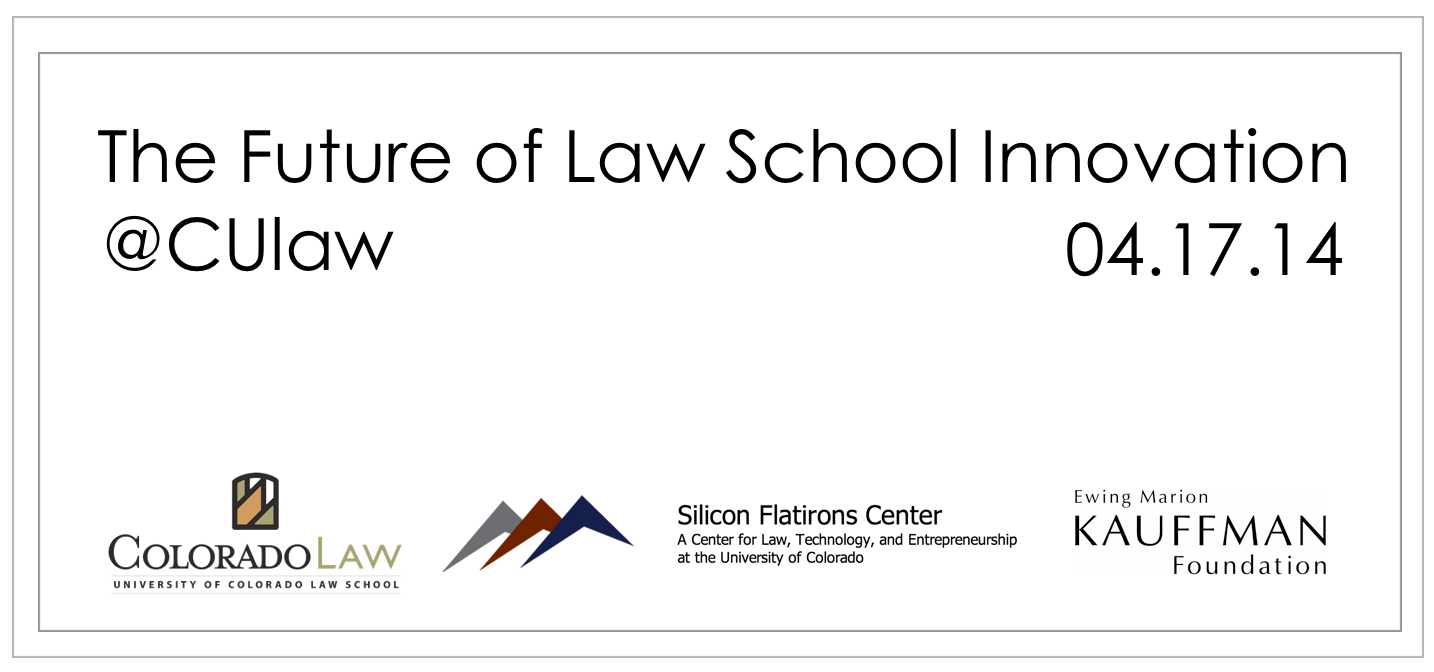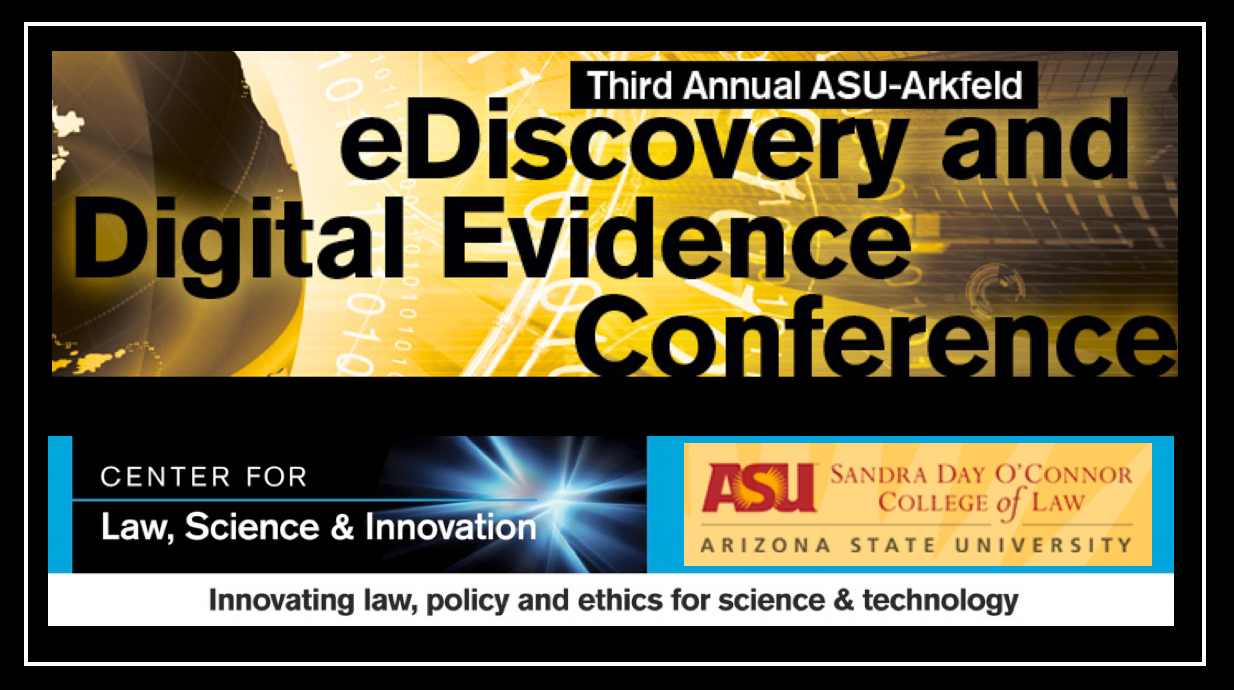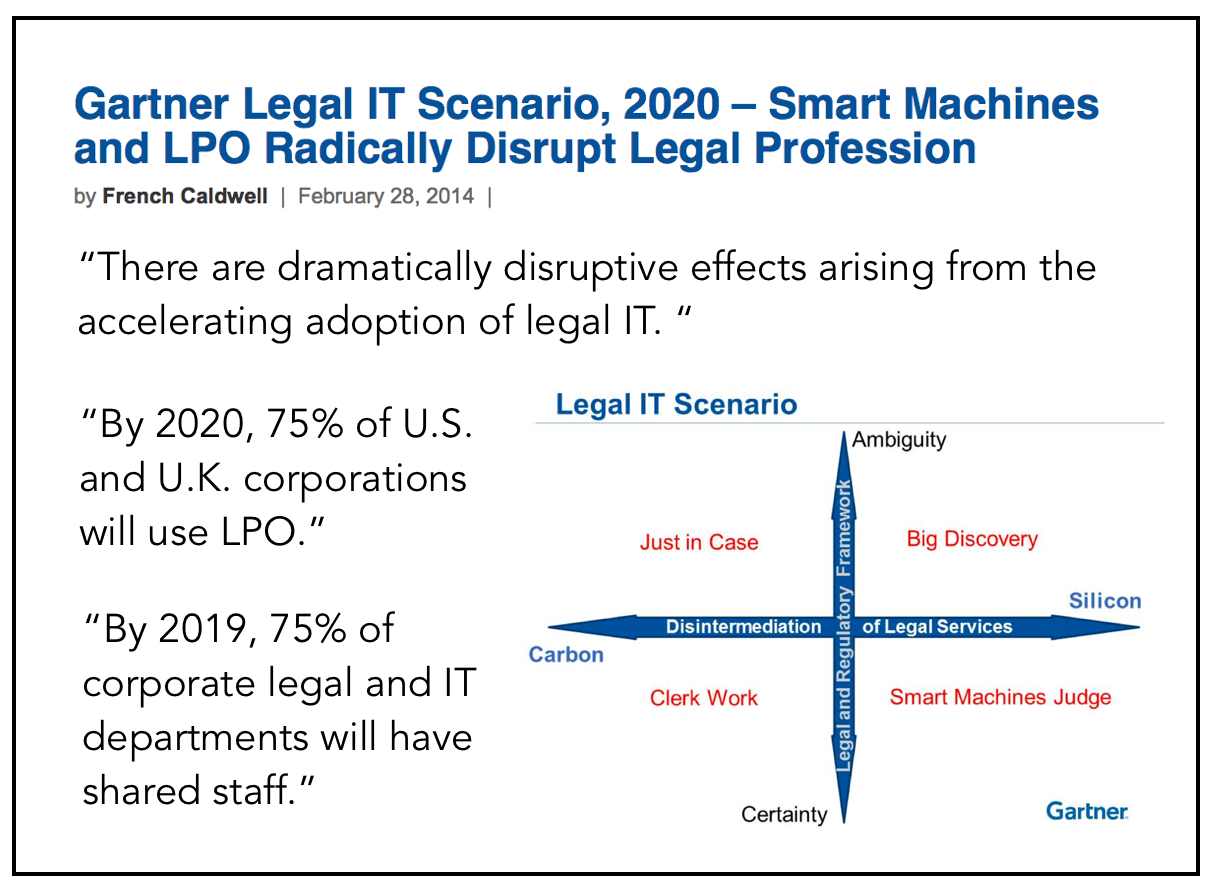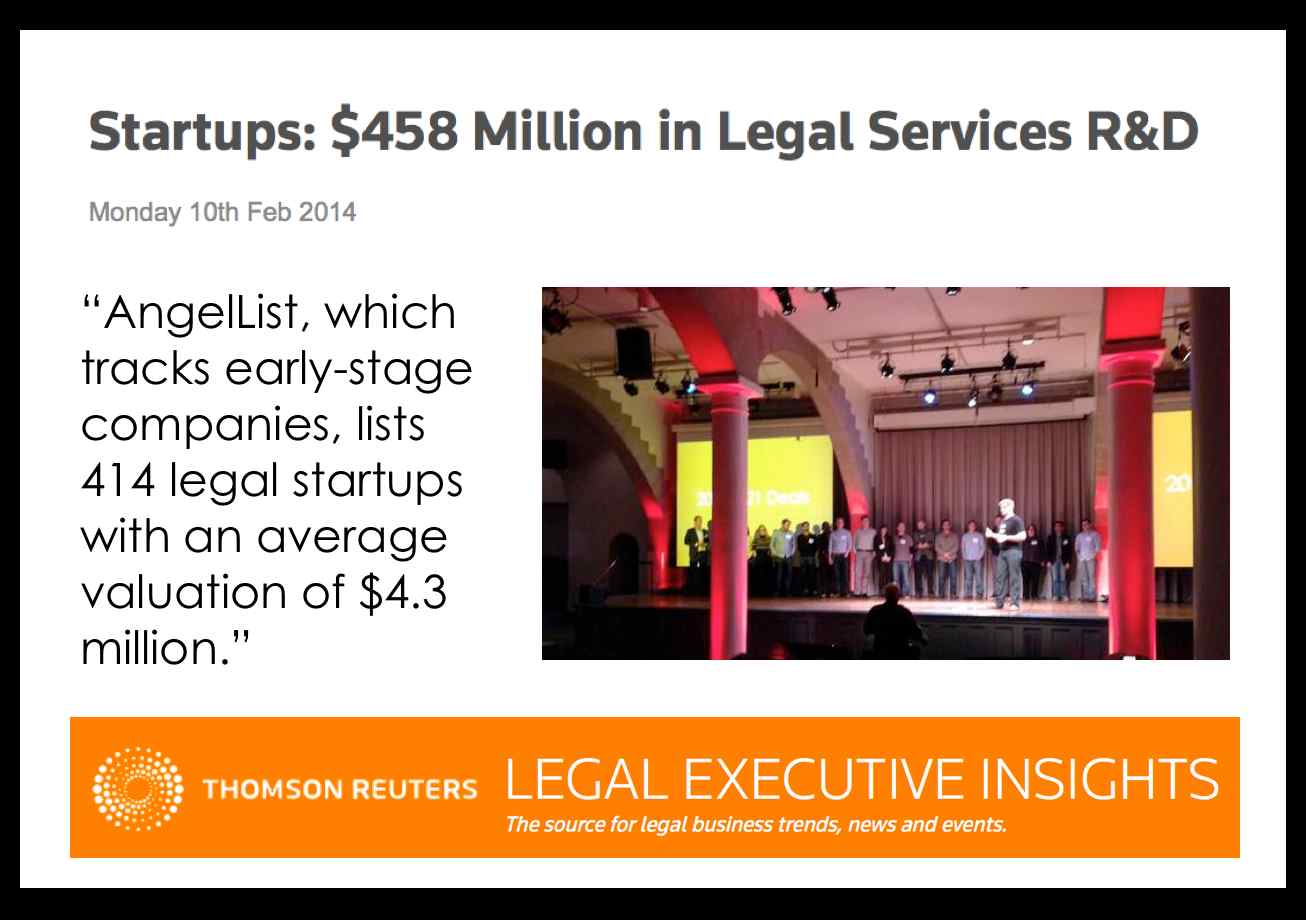Harry Surden – Computable Contracts from ReInvent Law Channel on Vimeo.
 From the conference announcement: “Over the last 5 years, in the fallout of the Great Recession, the legal profession has entered the era of the New Normal. Notably, a series of forces related to technological change, globalization, and the pressure to do more with less (in both corporate America and law firms) has changed permanently the legal services industry. As one article put it, firms are cutting back on hiring “in order to increase efficiency, improve profit margins, and reduce client costs.” Indeed, in its recently noted cutbacks, Weil Gotshal’s leaders remarked that it had initially expected old work to return, but came “around to the view that this is the ‘new normal.'”
From the conference announcement: “Over the last 5 years, in the fallout of the Great Recession, the legal profession has entered the era of the New Normal. Notably, a series of forces related to technological change, globalization, and the pressure to do more with less (in both corporate America and law firms) has changed permanently the legal services industry. As one article put it, firms are cutting back on hiring “in order to increase efficiency, improve profit margins, and reduce client costs.” Indeed, in its recently noted cutbacks, Weil Gotshal’s leaders remarked that it had initially expected old work to return, but came “around to the view that this is the ‘new normal.'”
The New Normal provides lawyers with an opportunity to rethink—and reimagine—the role of lawyers in our economy and society. To the extent that law firms enjoyed, or still enjoy, the ability to bundle work together, that era is coming to an end, as clients unbundle legal services and tasks. Moreover, in other cases, automation and technology can change the roles of lawyers, both requiring them to oversee processes and use technology more aggressively as well as doing less of the work that is increasingly managed by computers (think: electronic discovery). The upside is not only greater efficiencies for society, but new possibilities for legal craftsmanship.
The emerging craft of lawyering in the New Normal is likely to require lawyers to be both entrepreneurial and fluent with a range of competencies that will enable them to add value for clients. Apropos of the trends noted above, there are emerging opportunities for “legal entrepreneurs” in a range of roles from legal process management to developing technologies to manage legal operations (such as overseeing automated processes) to supporting online dispute resolution processes. In other cases, effective legal training as well as domain specific knowledge (finance, sales, IT, entrepreneurship, human resources, etc.) can form a powerful combination that prepares law school grads for a range of opportunities (business development roles, financial operations roles, HR roles, etc.). In both cases, traditional legal skills alone will not be enough to prepare law students for these roles. But the proper training, which builds on the traditional law school curriculum and goes well beyond it including practical skills, relevant domain knowledge (e.g., accounting), and professional skills (e.g., working in teams), will provide law school students a huge advantage over those with a one-dimensional skill set.”
 Yesterday I had the pleasure of providing the concluding remarks at the ASU – Arkfeld Electronic Discovery Conference in Tempe, Arizona. It was a really good mix of practicing lawyers, judges and technology providers in the room. Kudos to Michael Arkfeld, Josh Abbott and the rest of the planning committee for a great conference!
Yesterday I had the pleasure of providing the concluding remarks at the ASU – Arkfeld Electronic Discovery Conference in Tempe, Arizona. It was a really good mix of practicing lawyers, judges and technology providers in the room. Kudos to Michael Arkfeld, Josh Abbott and the rest of the planning committee for a great conference!

Last week Bill Henderson, Bruce MacEwen and Daniel Martin Katz convened the first Forum on Legal Evolution – a small invitation only forum – for leaders from across the legal supply chain (General Counsels, Law Firms, Legal Technologists, Legal Media, Legal Educators, etc.). It was a good mix of members of the AM 200, GC’s of large companies, strategically important technology providers, etc. The primary focus of this first forum was three-fold: (1) change management and the diffusion of innovation, (2) process engineering and process improvement and (3) big data, legal analytics and machine learning in law practice (katz+bommartio slides are available here).
Aric Press from The American Lawyer offers a short write up of the event here.
Brian Dalton from Above the Law offers his perspective here.
 The report offers a number of predictions including those quoted above and “by 2018, legal IT courses will be required for the graduates of at least 20 U.S. Tier 1 and Tier 2 law schools.”
The report offers a number of predictions including those quoted above and “by 2018, legal IT courses will be required for the graduates of at least 20 U.S. Tier 1 and Tier 2 law schools.”
While that would be sensible idea given the emerging opportunities in the legal market, I doubt that this will happen by 2018. Indeed, I would predict that somewhere between {0-2} law schools will make such the move of making such content mandatory by 2018. The ability to teach such a course is almost never a recognized hiring priority or hiring qualification that institutions are seeking (see here here here, etc.). Instead, law schools and faculty hiring committees typically focus on hiring for existing or perceived institutional needs. Even when institutions focus on the so called “best athlete” model of hiring … legal technology, etc. typically does not constitute a relevant dimension of the question. In other words, as I said in my MIT School of Law slide deck (and paper) the best athlete model depends upon what sport we are playing.
I am proud to be one of the few tenure track faculty members who actually teaches such courses inside a law school environment (legal technology / legal information engineering, quantitative methods, e-discovery, entrepruenerial lawyering, legal analytics, etc.) Among the existing institutions, there are strong and weaker version of the above courses. However, minus a few notable exceptions, most institutions do not have faculty members with the technical chops that are necessary to effectively teach such course(s).
The intersection of law+technology is one of the growth sectors within legal and as such it is a very exciting time to work in this area. Arbitrage opportunities are temporal in nature and given the highly competitive environment among law schools, it does not bother me if other law schools do not make this a priority. It allows those of us who are so inclined to build relationships with the leading folks in this emerging industry sub-sector before it lands on the radar of others.
 Take a look at this list of legal startups on Angel List – 414 and counting. I am happy to count many of these companies as #ReInventLaw Speakers / Attendees. While many of these companies may not succeed in the long run – these companies tend to cluster around certain ideas. It is my belief that many of those ideas will ultimately prevail. For more thoughts check out Bob Ambrogi’s post “A Time of Unprecedented Innovation in Legal Technology.” I agree with most of his thoughts on the matter.
Take a look at this list of legal startups on Angel List – 414 and counting. I am happy to count many of these companies as #ReInventLaw Speakers / Attendees. While many of these companies may not succeed in the long run – these companies tend to cluster around certain ideas. It is my belief that many of those ideas will ultimately prevail. For more thoughts check out Bob Ambrogi’s post “A Time of Unprecedented Innovation in Legal Technology.” I agree with most of his thoughts on the matter.